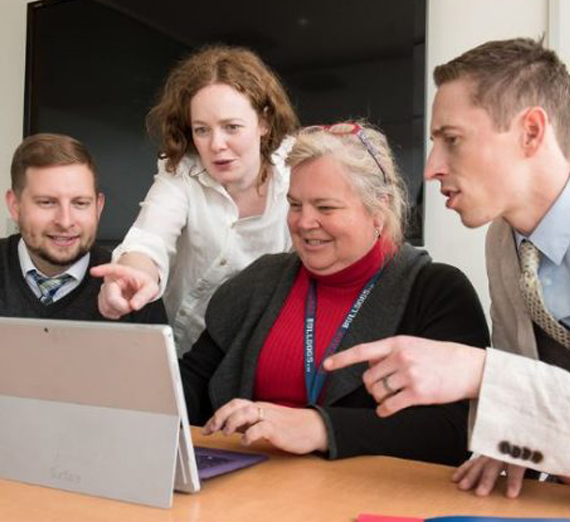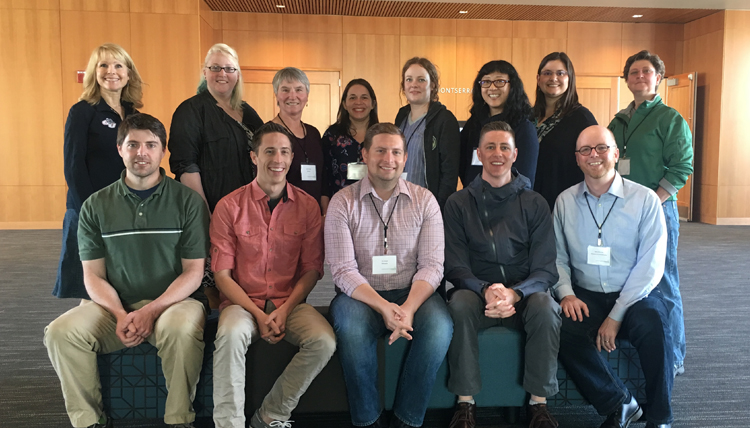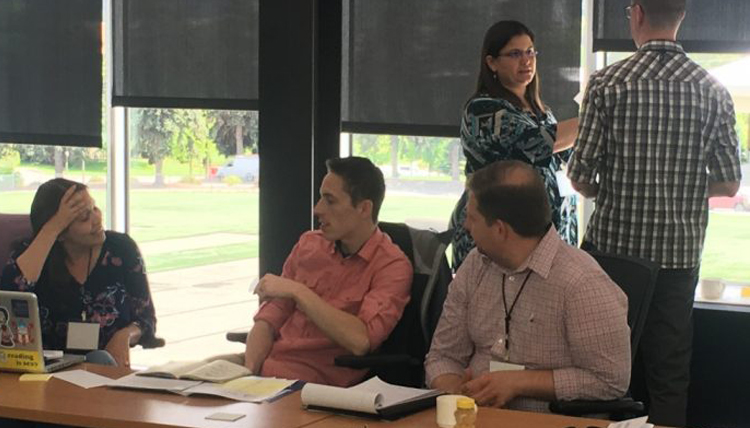Sustainability: Keeping On Our Toes

The Cataldo Project and others like it are made possible in part by support from the Fund for Gonzaga, comprised of gifts from committed Zags like you. Thank you!
What does environmental sustainability have to do with theatre and dance? At Gonzaga University, plenty. Support for the Fund for Gonzaga has enabled the Cataldo Project, an initiative focused on encouraging the integration of issues relating to sustainability in courses of all disciplines, to have an impact on more than a dozen faculty members and over 1,400 students — including those in theatre and dance.
“God has entrusted the world to us,” said Pope Francis in his 2015 encyclical letter on Care for our Common Home. The Holy Father continued, explaining how Saint Francis of Assisi serves as an inspiration for all to witness “how inseparable the bond is between concern for nature, justice for the poor, commitment to society, and interior peace.”
Seven years prior to the publishing of this encyclical letter, Gonzaga faculty members Monica Bartlett (psychology) and Brian Henning (philosophy) partnered with then President Robert Spitzer, S.J., to identify projects and opportunities at the University to further the cause of sustainability and responsible stewardship of our environment. Their initial efforts eventually led to Gonzaga hosting the first regional Sustainability Across the Curriculum conference in 2012. Through the workshops at this conference, a core group of diverse faculty came together, helping to create what is now known as the Cataldo Project.

“I ask myself, ‘how can I live my life today to cause the least disruption to our ecosystem?’,” said Kayla Kassa (’17), a recent civil engineering graduate who experienced courses taught by faculty taking part in the Cataldo Project. “I am making changes now because I believe that living a sustainable life is our duty to this earth.”
“To be an informed citizen, you have an obligation to have knowledge around what future we are bringing upon ourselves,” added GU finance major and recent graduate Brad Dale (’17).

Rhonda Young, an associate professor of civil engineering at Gonzaga saw the effects of the Cataldo Project reaching into senior design project proposals and increased interest in the transportation engineering course, which had been revised to incorporate the theme of sustainability.
Leslie Stamoolis, of Gonzaga’s theatre and dance department, took part in the Cataldo Project workshops and felt strongly about incorporating sustainability concepts into the costume construction course she teaches.
“I found myself desiring to make changes in my shop,” she said. She began researching and exploring environmental considerations for the types of fabric dyes and makeups the department uses, eventually publishing an article on the subject in the quarterly journal, Theatre Design and Technology. She also engaged students in a project in which they considered their “fashion footprint,” encouraging them to think about how their decisions can affect our world.
